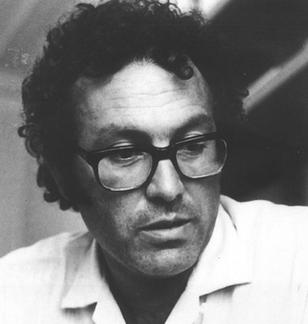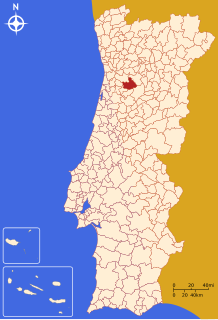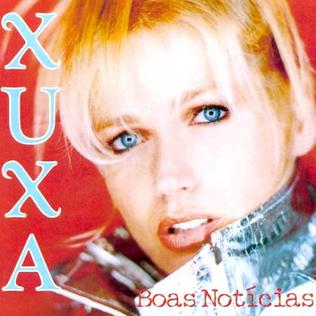
Portuguese music includes many different styles and genres, as a result of its history. These can be broadly divided into classical music, traditional/folk music and popular music and all of them have produced internationally successful acts, with the country seeing a recent expansion in musical styles, especially in popular music.

Carlos ParedesComSE was a virtuoso Portuguese guitar player and composer. He is regarded as one of the greatest players of Portuguese guitar of all-time.

José Manuel Cerqueira Afonso dos Santos, known professionally as José Afonso and also popularly known as Zeca Afonso or simply Zeca, was a Portuguese singer-songwriter. One of the most influential folk and protest musicians in the history of Portugal, he became an icon in Portugal due to the role of his music in the resistance against the dictatorial Estado Novo regime.

Manuel Alegre de Melo Duarte, GCL is a Portuguese poet and politician, member of the Socialist Party, and a candidate for the 2006 Portuguese presidential election. He ran again in the 2011 presidential election, this time backed by the Left Bloc and the Socialist Party. Alegre was awarded the Camões Prize in 2017.
Adriano Maria Correia Gomes de Oliveira, GCIH, ComL, or just Adriano was a Portuguese musician, born to a conservative Roman Catholic family in Porto. His family moved to Avintes after his birth. He went to Coimbra to study at the University of Coimbra, and eventually dropped out, albeit being involved in the student activism and Coimbra fado music.
Correia is a surname of Portuguese and Galician origin, also spelled Correa or Corrêa. Correia/Correa is found throughout all of the Iberian Peninsular.

The Cinema of Portugal started with the birth of the medium in the late 19th century. Cinema was introduced in Portugal in 1896 with the screening of foreign films and the first Portuguese film was Saída do Pessoal Operário da Fábrica Confiança, made in the same year. The first movie theater opened in 1904 and the first scripted Portuguese film was O Rapto de Uma Actriz (1907). The first all-talking sound film, A Severa, was made in 1931. Starting in 1933, with A Canção de Lisboa, the Golden Age would last the next two decades, with films such as O Pátio das Cantigas (1942) and A Menina da Rádio (1944). Aniki-Bóbó (1942), Manoel de Oliveira's first feature film, marked a milestone, with a realist style predating Italian neorealism by a few years. In the 1950s the industry stagnated. The early 1960s saw the birth of the Cinema Novo movement, showing realism in film, in the vein of Italian neorealism and the French New Wave, with films like Dom Roberto (1962) and Os Verdes Anos (1963). The movement became particularly relevant after the Carnation Revolution of 1974. In 1989, João César Monteiro's Recordações da Casa Amarela won the Silver Lion at the Venice Film Festival and in 2009, João Salaviza's Arena won the Short Film Palme d'Or at the Cannes Film Festival. Several other Portuguese films have been in competition for major film awards like the Palme d'Or and the Golden Bear. João Sete Sete (2006) was the first Portuguese animated feature film. Portuguese cinema is significantly supported by the State, with the government's Instituto do Cinema e do Audiovisual giving films financial support.

São Pedro do Sul is a municipality in the Central Portuguese district of Viseu. Part of the subregion of Dão-Lafões, the municipality has a population of 16,851 inhabitants and includes 14 civil parishes. The seat of this municipality is the city of São Pedro do Sul, with a population of 5,728 inhabitants.
Portuguese contemporary art is all the art produced in Portugal after the Carnation Revolution; however, even before then, there were already some artists that could be characterized as contemporary.

Alma is the second album released by Portuguese fado singer Carminho. It was released on 2 March 2012. The album features three classical fados, from the repertoires of Amália Rodrigues, Maria Amélia Proença and Fernanda Maria, three originals, including Bom Dia, Amor, from a letter by Fernando Pessoa, and two versions of traditional fados, with new lyrics, including Folha, written by Carminho herself. The album includes two versions of songs of great names of the Brazilian Popular Music, Meu Namorado, by Chico Buarque, and Saudades do Brasil em Portugal, by Vinicius de Moraes.

Events in the year 1889 in Brazil.

Tô de Bem com a Vida is the seventeenth studio album and the twelfth in Portuguese by Brazilian pop singer Xuxa Meneghel. It was released by Som Livre on October 5, 1996.

Boas Notícias is the twentieth studio album and the fourteenth in the Portuguese by Brazilian singer and TV host Xuxa Meneghel. It was released on September 22, 1997 by Som Livre. It was the last Xuxa album to be released as a cassette.
Afonso Dias is a Portuguese singer, musician, poet and actor. He was deputy of the Constitution Assembly of 1975/76 under the Popular Democratic Union (Portugal). In music, he was one of the founders of Grupo de Acção Cultural. He was elected in numerous presentation inside and outside Portugal, though he recorded different discs in the studio. Throughout his career, he took part in artistic shows with José Afonso, Sérgio Godinho, Francisco Fanhais, Manuel Freire, Pedro Barroso, Tino Flores, José Fanha and others, he had edited several solo studio albums. In theater, in the 1960s and the 1970s, he attended theatrical plays with Costa Ferreira, Carmen Dolores and Rogério Paulo. He was the founded of Trupe Barlaventina - Jograis do Algarve in 1999, and performed numerous shows and made studio recordings. He worked as a director-actor and actor, since 2003 with the A Companhia de Teagro de Algarve. He was member of the Associação Música XXI which had been recording several CD collections in Selecta.
Fausto, OL, born Carlos Fausto Bordalo Gomes Dias; 26 November 1948 in Atlantic Ocean, registered in Vila Franca das Naves, Trancoso, is a Portuguese composer and singer.
Anarchism in Portugal first appeared in the form of organized groups in the mid-1880s. It was present from the first steps of the workers' movement, revolutionary unionism and anarcho-syndicalism had a lasting influence on the General Confederation of Labour, founded in 1919.









